
One of the first reports came from Chengdu, China, 1000 kilo-metres west of the epidemic’s origin in Wuhan. By the end of January 2020, this normally bustling metropolis of more than 16 million people was a ghost town. One of the few people brave enough to venture out was birder Steven Bonta, who reported his observations in a blog on ShanghaiBirding.com. Most birds in China have a tough time, being hunted or harassed by people. But within days of the self-imposed lockdown, a host of normally scarce or reclusive species was feeding out in the open, from White-browed Laughingthrushes and Chinese Grosbeaks to Plumbeous Redstarts and Rosy and Olive-backed pipits. And the Grey Herons and Little Egrets were no longer confined to an island in the centre of the river through the city, but happily feeding all along its banks.
As lockdowns were enforced beyond China, sightings of urban wildlife proliferated almost as fast as the virus. Most were of mammals – coyotes in downtown Chicago, wild boars in Barcelona and pumas in Santiago. And it wasn’t just in towns. Black bears in Yosemite National Park came out into open meadows more often after the park was closed to the public and a pride of lions sleeping on a tar road in the Kruger National Park attracted media attention. Even some marine mammals took advantage of the situation, with a South American sea lion exploring a town in southern Peru and orcas seen closer to Seattle than is normally the case. But it wasn’t all good news. In Thailand, hundreds of crab-eating macaques went on the rampage as the handouts from tourists to the Lopburi ‘monkey temple’ dried up. And in Nara, Japan, the habituated sika deer left the parks to wander the city streets in search of food.
Bu hikaye African Birdlife dergisinin July - August 2020 sayısından alınmıştır.
Start your 7-day Magzter GOLD free trial to access thousands of curated premium stories, and 9,000+ magazines and newspapers.
Already a subscriber ? Giriş Yap
Bu hikaye African Birdlife dergisinin July - August 2020 sayısından alınmıştır.
Start your 7-day Magzter GOLD free trial to access thousands of curated premium stories, and 9,000+ magazines and newspapers.
Already a subscriber? Giriş Yap

EXPLORING NEW HORIZONS
Keith Barnes, co-author of the new Field Guide to Birds of Greater Southern Africa, chats about the long-neglected birding regions just north of the Kunene and Zambezi, getting back to watching birds and the vulture that changed his life.

footloose IN FYNBOS
The Walker Bay Diversity Trail is a leisurely hike with a multitude of flowers, feathers and flavours along the way.
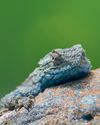
Living forwards
How photographing birds helps me face adversity
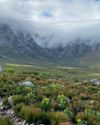
CAPE crusade
The Cape Bird Club/City of Cape Town Birding Big Year Challenge
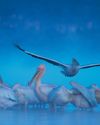
water & WINGS
WATER IS LIFE. As wildlife photographer Greg du Toit knows better than most.
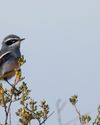
winter wanderer
as summer becomes a memory in the south, the skies are a little quieter as the migrants have returned to the warming north. But one bird endemic to the southern African region takes its own little winter journey.
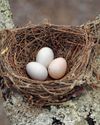
when perfect isn't enough
Egg signatures and forgeries in the cuckoo-drongo arms race

Southern SIGHTINGS
The late summer period naturally started quietening down after the midsummer excitement, but there were still some classy rarities on offer for birders all over the subregion. As always, none of the records included here have been adjudicated by any of the subregion's Rarities Committees.

flood impact on wetland birds
One of the features of a warming planet is increasingly erratic rainfall; years of drought followed by devastating floods. Fortunately, many waterbirds are pre-adapted to cope with such extremes, especially in southern Africa where they have evolved to exploit episodic rainfall events in semi-arid and arid regions. But how do waterbirds respond to floods in areas where rainfall - and access to water - is more predictable? Peter Ryan explores the consequences of recent floods on the birds of the Western Cape's Olifants River valley.
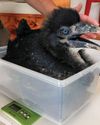
a star is born
It’s every producer’s dream to plan a wildlife television series and pick the right characters before filming.